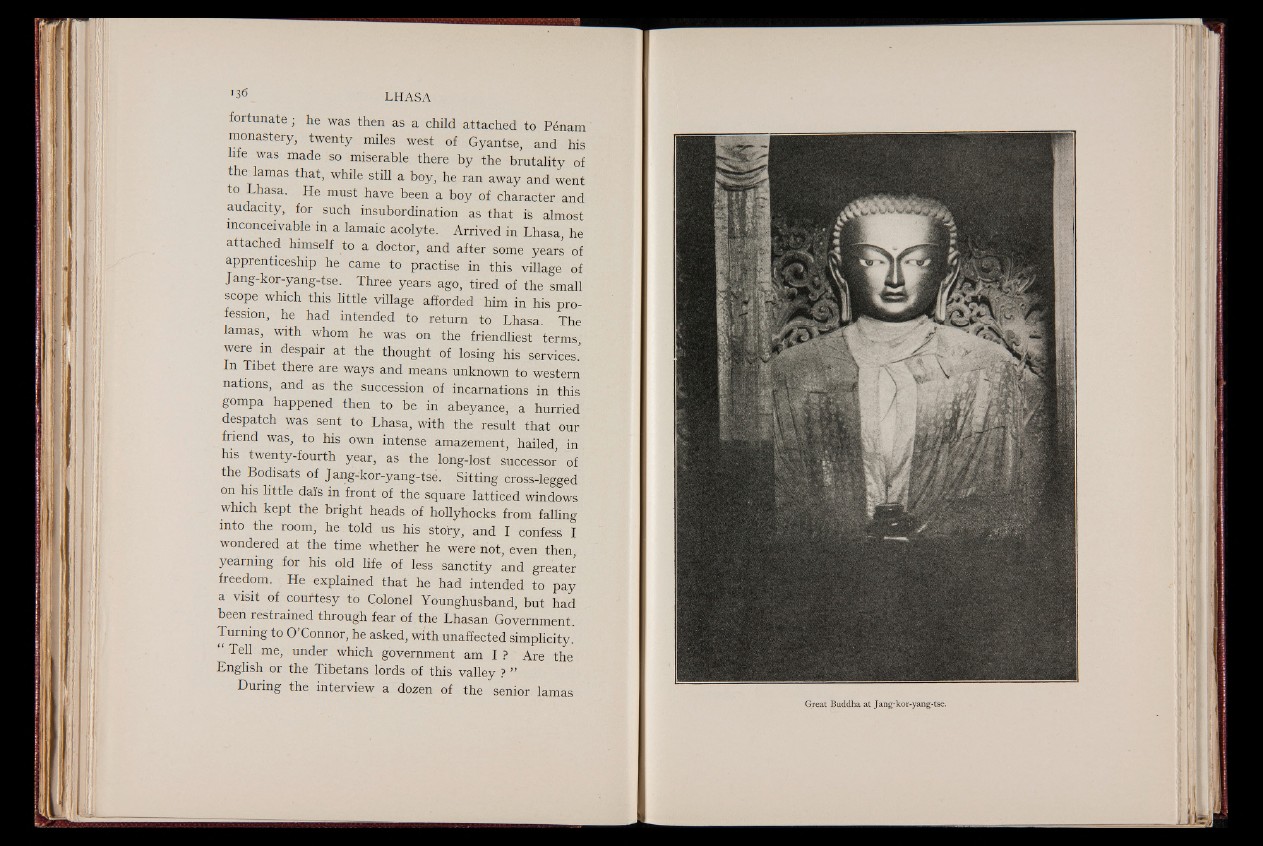
fortunate; he was then as a child attached to Penam
monastery, twenty miles west of Gyantse, and his
life was made so miserable there by the brutality of
the lamas that, while still a boy, he ran away and went
to Lhasa. He must have been a boy of character and
audacity, for such insubordination as that is almost
inconceivable in a lamaic acolyte. Arrived in Lhasa, he
attached himself to a doctor, and after some years of
apprenticeship he came to practise in this village of
Jang-kor-yang-tse. Three years ago, tired of the small
scope which this little village afforded him in his profession,
he had intended to return to Lhasa. The
lamas, with whom he was on the friendliest terms
were m despair at the thought of losing his services!
In Tibet there are ways and means unknown to western
nations, and as the succession of incarnations in this
gompa happened then to be in abeyance, a hurried
despatch was sent to Lhasa, with the result that our
friend was, to his own intense amazement, hailed, in
his twenty-fourth year, as the long-lost successor of
the Bodisats of Jang-kor-yang-tse. Sitting cross-legged
on his little dais in front of the square latticed windows
which kept the bright heads of hollyhocks from falling
into the room, he told us his story, and I confess I
wondered at the time whether he were not, even then
yearning for his old life of less sanctity and greater
freedom. He explained that he had intended to pay
a visit of courtesy to Colonel Younghusband, but had
been restrained through fear of the Lhasan Government.
Turning to O’Connor, he asked, with unaffected simplicity.
Tell me, under which government am I ? Are the
English or the Tibetans lords of this valley ? ”
During the interview a dozen of the senior lamas
Great Buddha at Jang-kor-yang-tse.